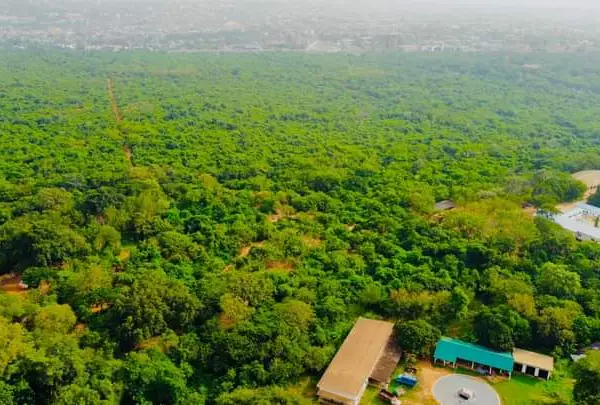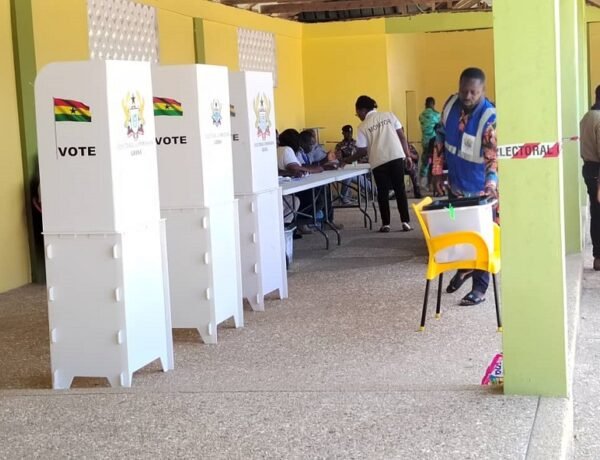Introduction:
The phrase “resetting Ghana” prominently featured in the then candidate John Dramani Mahama (JDM) and his National Democratic Congress (NDC) party’s campaign manifesto during the 2024 general election. With the good-will of the Ghanaian citizenry and deplorable socio-economic indicators of the erstwhile New Patriotic Party (NPP) government, JDM and his NDC party won the general election, thus becoming the current president of the Republic of Ghana. In his attempt to fulfil the social contract signed with the Ghanaian people, several socio-economic initiatives have been proposed by JDM’s government, with the Electricity Corporation of Ghana (ECG) being considered for privatisation to solve the power crisis engulfing the state. Against that backdrop, this post holds the view that privatisation is not only a bad strategy but also lazy man’s approach to dealing with the problem, considering the misery which had visited Ghanaians when same strategy was acquiesced to, in the 1990s where several state enterprises were privatised under International Monetary Fund (IMF) and World Bank (WB) conditionalities.
In respect of the above, this post provides a cursory overview of the negative consequences of privatisation to the Ghanaian people and economy as well as recommend strategies which could be implemented to build the capacities of state institutions as a bulwark to reset the socio-economic foundation of the nation.
The ILLs of Privatisation in Ghana
One cardinal argument cited by the IMF/WB experts in recommending privatisation of state assets was inefficiency stemming from weak management of those enterprises. However, researches conducted by academics, practitioners and institutions post-privatisation, indicated that privatisation was never the remedy; since the Ghanaian economy and majority of its people become destitutes without sound social safe-nets to support those adversely affected by the privatisation policy. For example, state assets/enterprises like the Ghana Water and Sewerage Corporation (GWSC), Public Works Department (PWD), Nsawam Canary, Wenchi Tomacan, Tema Aluminium factory, Tema Drydocks, just to list a few- were sold off or privatised callously. Today, as one travels across Ghana, buildings and facilities of the GWSC and other state enterprises are left idly standing while some of them have become spaces for the citizens to dry their cloths and children’s football pitches. Although one would argue that drying cloths, crops, and playing football are some benefits derived by the citizenry post-privatisation, these tenuous gains are inadequate to build a nation as competitive as the challenges of twenty-first century require to advance national growth and development. By implementing radical privatisation of state assets without providing/building alternative institutions to replace them is the consequence of legions of graduate/youth unemployment in the country, and over-reliance and dependence on foreign donors including extensive national debt. A country with bounteous natural resources yet imports most of its needs from external sources is bound to fail. There cannot be true and genuine resetting of the Ghanaian economy and state with further privatisation of state assets, especially the ECG. To secure the Ghana we want under the resetting agenda of JDM and the NDC, requires adopting innovative home-grown solutions to enhance the efficiency of states assets, especially the ECG, to propel the twenty-four (24) economy.
Rebuild Capacities of State Institutions by avoiding Privatisation of ECG
At the cusp of the twenty-first century and sixty-eight years (68) of independence, Ghana should have had an efficient and effective ECG providing stable supply of electricity to the people and industry to drive socio-economic activities that generate jobs and growth. The feeble excuse peddled by successive governments and agencies is that Ghana is still young. However, the Ghanaian politician and public agencies are neck-stepped in corruption and nefarious activities, which compromise the productivity of state agents. Such is the case of the ECG. Like the deceptive argument stated for the attempted sale of the Labardi Beech Hotel and other hotels, same argument is being proposed for ECG to be privatised. Fortunately, the causes of the ECG’s poor performance is known to the general public and JDM; therefore, suggesting privatisation is a lousy approach and failure to lead. The causes of the ECG’s poor performance, particularly financial losses and over-burden debt is public knowledge. So, JDM, the remedy is to lead on that front pragmatically by changing the management, investigate, prosecute and ask culprits to pay back all looted funds. How difficulty is that? That is the basis of resetting Ghana. Also, resetting means developing capacities of domestic state enterprises by setting aside budgetary allocations for universities and technical universities to work on national projects without sourcing them to foreign multinational corporations (MNCs). In this vein, the defunct PWD could be revised as an avenue for polytechnic students to go on placement to hone their skills in road-building and several other areas. Furthermore, the university of Science and Technology could also be assigned projects to work on, with a view to sharpening their expertise to address national problems. A case in point is the tidal waves and sea defence crisis in the volta region of Ghana. Where such expertise cannot be sourced locally and warrant foreign skills, students from domestic universities must be assigned/ seconded to learn from the experts, thereby building home-grown skills for the future. That should constitute part of the resetting agenda, Sir.
Concluding Remarks
Adopting privatisation as the panacea to solving Ghana’s electricity problem is no brainer. Neither is it durable nor amenable to the proposed policy of the twenty-hour economic policy. The causes of ECG’s poor performance coupled with all other underperforming state enterprises are public knowledge; therefore, JDM and his NDC government owe it to the Ghanaian citizenry to act in the national interest. Resetting requires building domestic capabilities to address national challenges at home; and there are resources and talents in Ghana to achieve this objective. JDM act now, but do it speedily.




